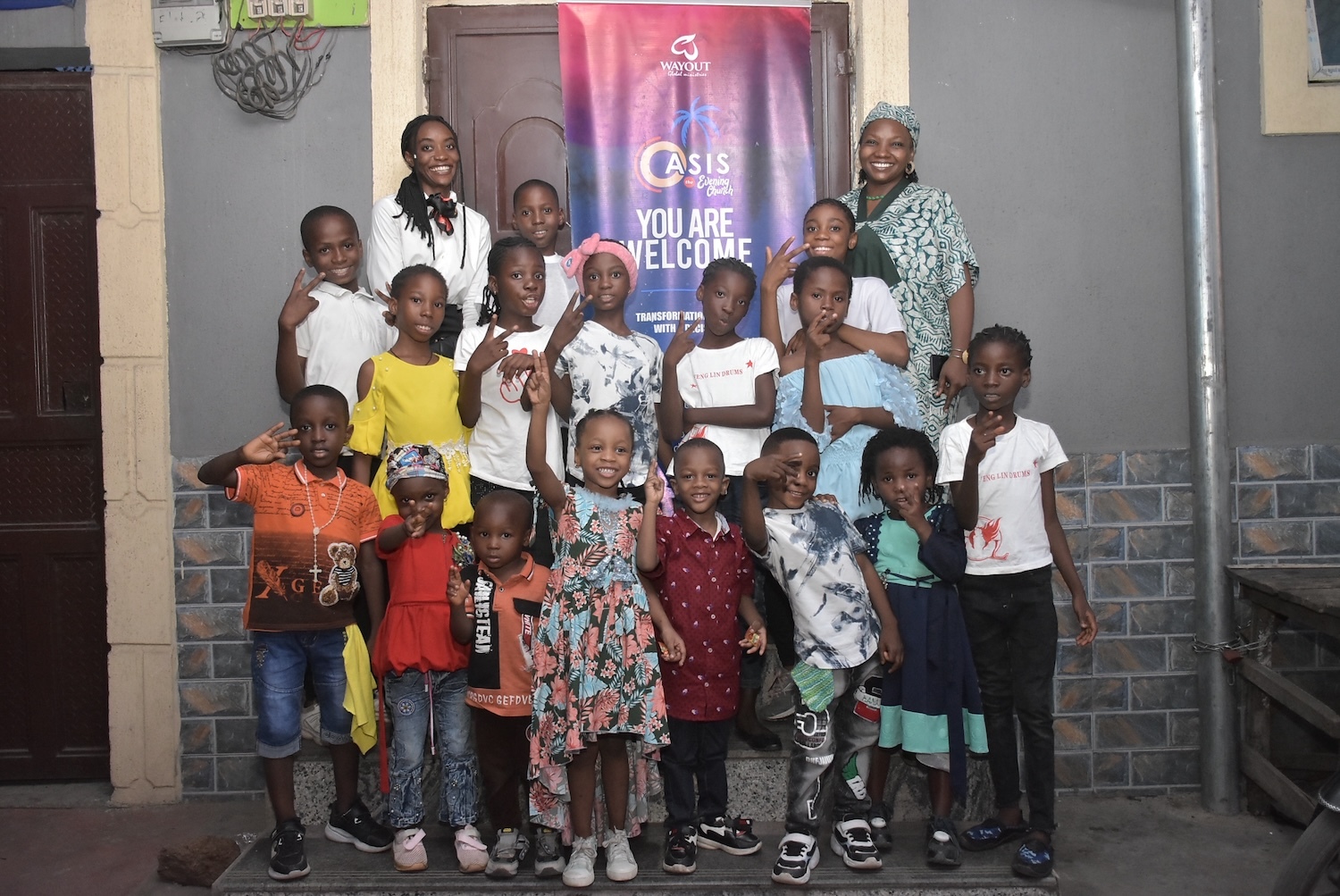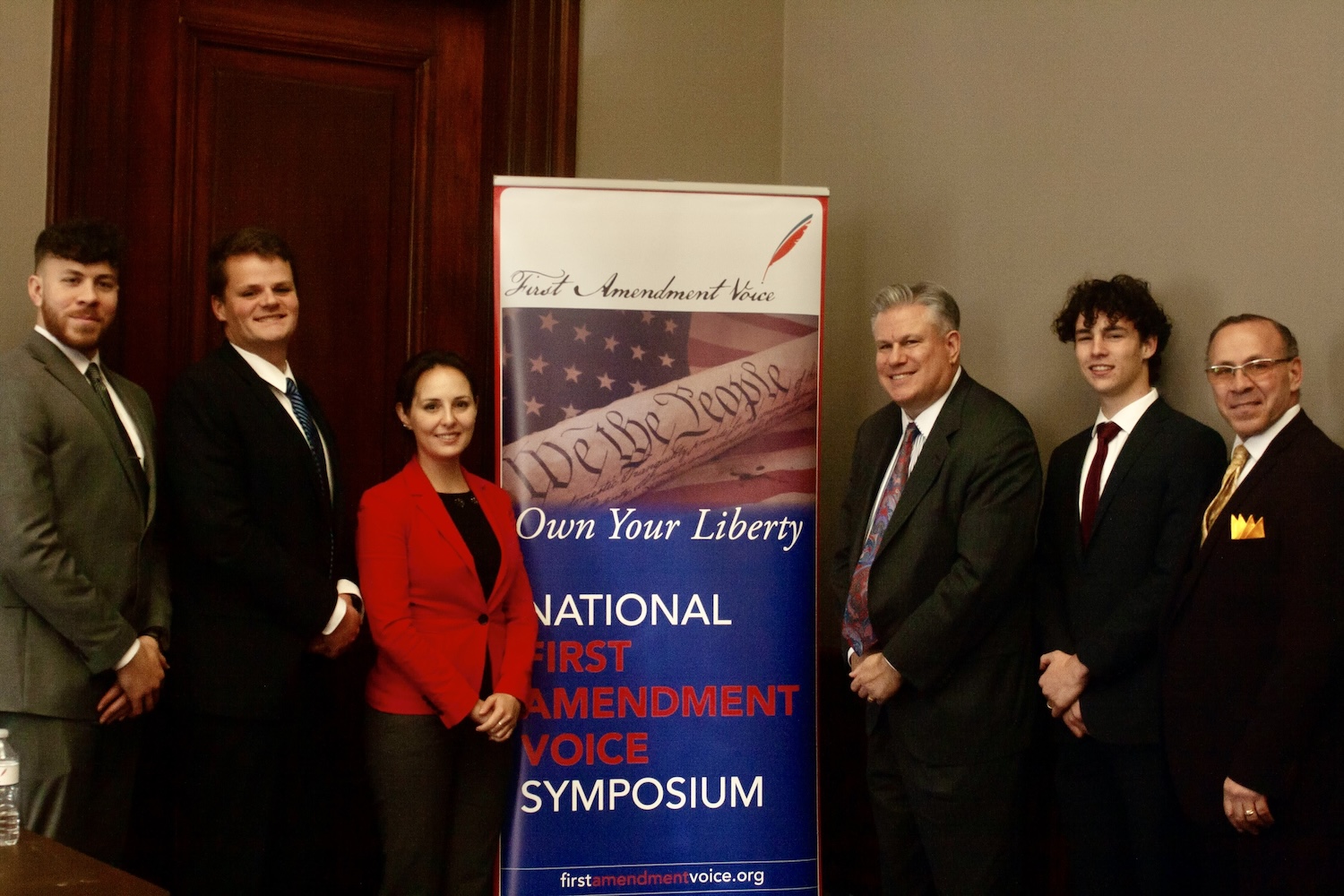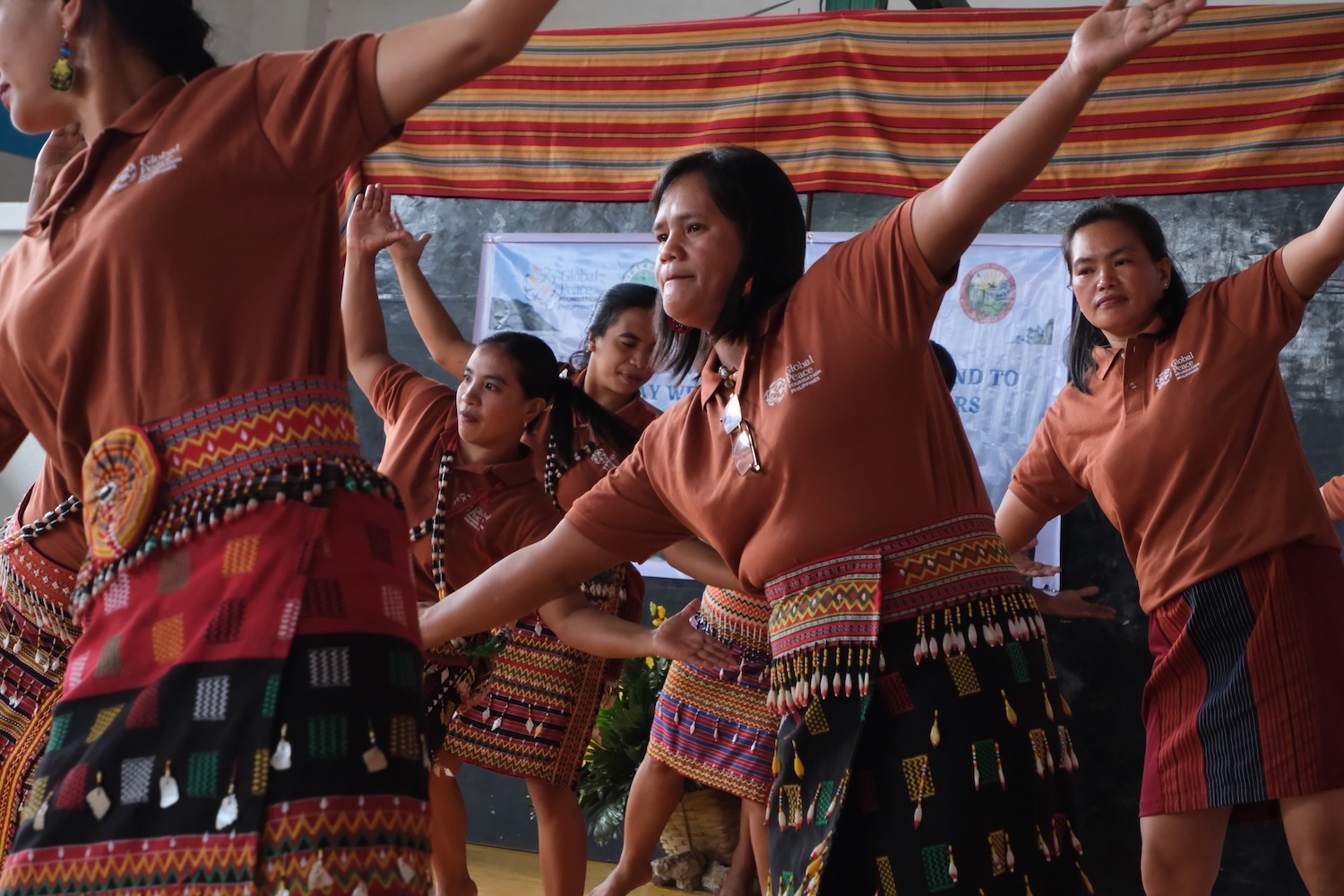A Palestinian peace activist and Jewish cleric and settler brought powerful personal stories of awakening and reconciliation to a forum, “Painful Hope: Understanding, Transformation, and Non-violence,” at the U.S. Capitol on October 11, 2016. The forum, hosted by the Global Peace Foundation USA in partnership with the Sustained Dialogue Institute, Roots, Friends of Taghyeer Movement, Oakbrook Church, Churches Middle East Peace, and Church Women United, highlighted two important grassroots initiatives that are working to build trust and engagement between the separated communities.

Rabbi Hanan Schlesinger, founder of Faiths in Conversation and director of Roots.
Rabbi Hanan Schlesinger, founder of Faiths in Conversation and director of Roots, opened the forum with a startling and candid admission: “For 33 years I’ve lived my life in an area where there are nine Palestinians for each Israeli. But I’ve never met even one Palestinian. Their story passed before my eyes. How can that be?”
A New York-born Jew, he moved to Israel at age 18 from a passionate personal calling and a recognition of “the destiny of the Jewish people to fulfill its historic role to reestablish the nation” on lands bequeathed to Jews since ancient times.
“Being a Jew in America was just treading water,” he said. “Being a Zionist means having a deep understanding that human history is presenting Jews with a unique opportunity to re-consummate our connection to our ancient homeland. Now that time has arrived, how can I not be part of it?
“But my sense is that the overwhelming power and truth and righteousness of this story has blinded me to another story. Ninety percent of people where I live are Palestinian, but I didn’t see them. I was blind.”
A turning point came unexpectedly. Hosting some U.S. pastors and showing the flourishing Jewish settlements on the West Bank, he picked up a couple of hitchhikers. “’You’re such a nice guy. You pick up hitchhikers,’ one of the pastors said. And I said we do pick up hitchhikers; we trust each other; I pick up every person who sticks up his finger.
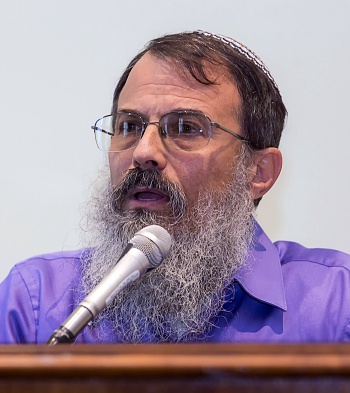
Rabbi Hanan Schlesinger
“And as I finished the sentence I realized I was lying. I don’t pick up everyone who sticks up his finger. I pick up only Jews. It was evil to say that I pick up everyone when it was not true. I didn’t see the Palestinians out there. And I caught myself at that minute and realized that I had some spiritual and moral work to do.”
He said a young woman who had become aware of Roots wanted to volunteer and he gave her the phone number of a Palestinian contact in Baituniya, a thriving Palestinian community of 20,000 that is a five minute drive from where this young woman spent the whole 27 years of her life.
“What is Baituniya?” she asked.
“She didn’t ask me where, she asked me what. That is rotten. And I’m not blaming her. I’m blaming our society and culture where people can live and not see beyond the fence. And I began to awaken from my stupor.”
Change through nonviolence
Following Rabbi Schlesinger to the podium, Palestinian activist and founder of Taghyeer [Change] Ali Abu Awwad described his own starkly different journey to embrace non-violence and recognition of the experience of the “other.”
“I was born as a refugee,” Awwad said. “What do you do when you live in a home that has no water, just a few hours every week? If you try to reach your school it takes sometimes three hours? If you grow up with no identity, and you want to grow up as a human being, what do you do?”
“Finally I was arrested at 17 years old and refused to give information about my mother, and was tortured for more than one month. I was hoping to die every day.”
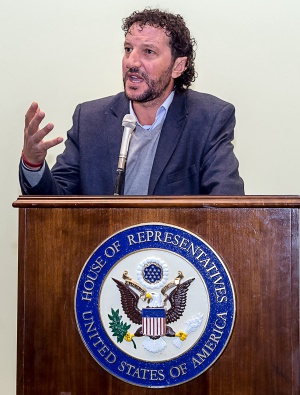
founder of Taghyeer [Change].
While engaged in a hunger strike to meet his mother who was also in prison, Ali came to understand that nonviolence was not only a moral imperative but, tactically, a more effective response to achieving the objectives of peace and justice for the Palestinian people. He began to learn to channel his pain and anger into nonviolent resistance, while further exploring the means of bridging the chasm that separated Israelis and Palestinians.
One day he was targeted in drive-by shooting by a settler, and while being treated for the gunshot wound learned that his brother was killed by Israeli soldiers. “He was not a terrorist, but a beautiful father of two children,” Awwad says. “He was not just my brother, he was my best friend. He was not a criminal. A soldier killed him at a check point. And I have to live with that.
“When this happened to me I lost the taste of my life. The easiest thing is to take revenge. This is the first thing you think about. I could kill an Israeli soldier, it might be the same one. Or an Israeli. But how many? If it is about revenge then it is about punishment, and if it is about punishment it is about justice. But what is justice?
“The only justice I could think about was to bring my brother back. This is justice. But he can never come back. What does that mean? There is no justice? Yes, there is no justice. While struggling with that I remember reading that justice is ‘just us,’ and not any behavior by someone else.

“Finally my life was transformed,” Awwad said, “and I became a nonviolent activist, working for peace and practical solutions. Later a group of Israeli parents came with respect to my home, and that for me was shocking, because this is not the face of Israel that we see.
“When we become strong enough we can create justice, not by killing others but by the moral actions that we do, and that is the best revenge. Because when we speak the truth without hatred, without anger, then maybe peace can start.”
Global Peace Foundation International President James Flynn closed the forum with reflections on the significance of the respective stories and importance of addressing identity-based conflict with a broader, more inclusive recognition of our shared, human identity.
“Regardless of our ethnic or religious identity or station in life, we are all members of one human family,” Flynn said. “This simple recognition can provide the basis for dialogue, engagement, forgiveness and reconciliation.”
To learn more about Roots or to get involved visit Friends of Roots
For more information on Taghyeer (Change) Palestinian National Nonviolence Movement visit Friends of Taghyeer
Watch a clip of Rabbi Hanan Schlesinger’s speech.
Watch a clip of Ali Abu Awwad’s speech.

